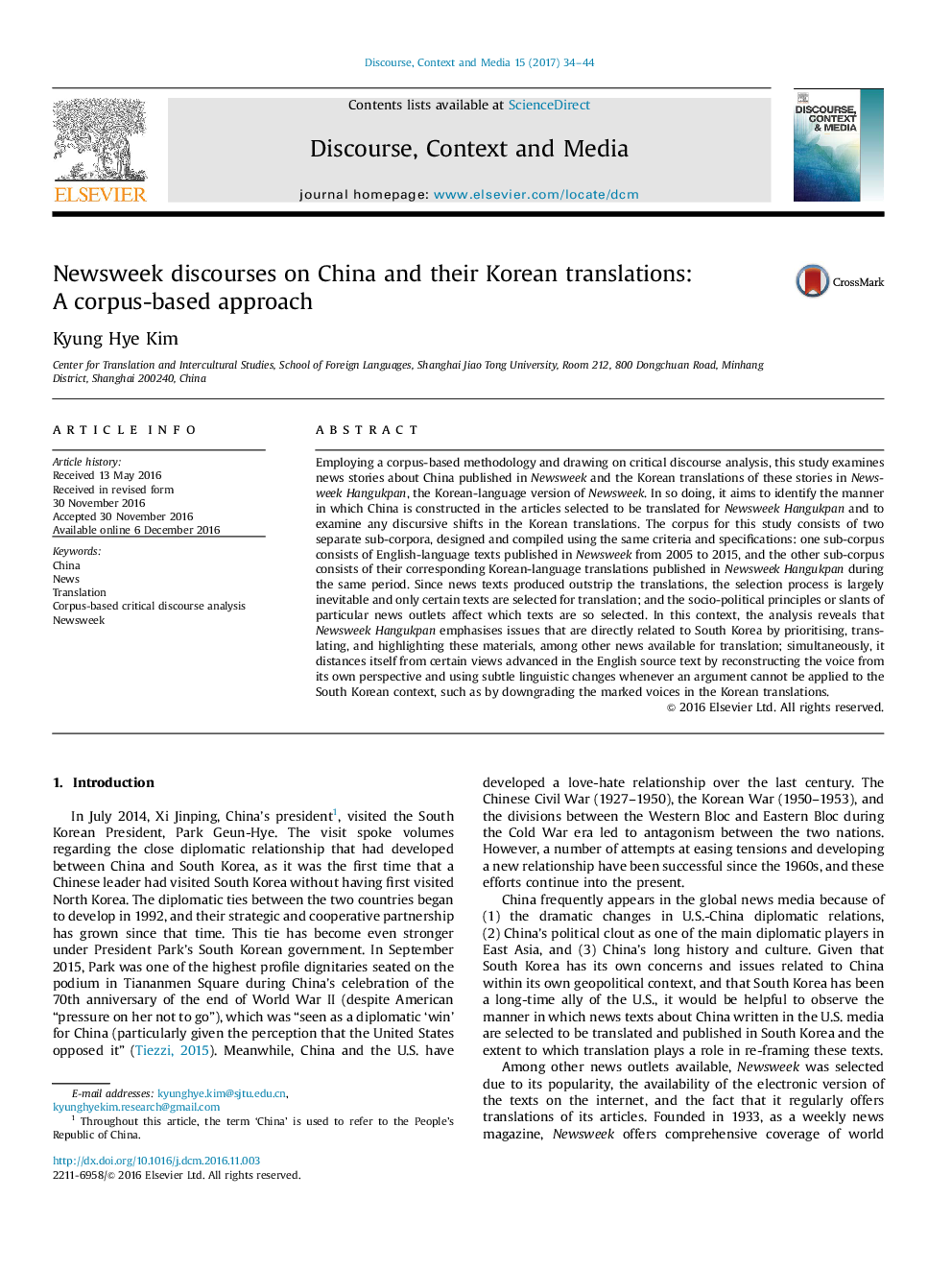ترجمه فارسی عنوان مقاله
گفتگوهای نیوزویک در مورد چین و ترجمه های کره ای: یک رویکرد مبتنی بر کپسول
عنوان انگلیسی
Newsweek discourses on China and their Korean translations: A corpus-based approach
| کد مقاله | سال انتشار | تعداد صفحات مقاله انگلیسی |
|---|---|---|
| 144579 | 2017 | 11 صفحه PDF |
منبع

Publisher : Elsevier - Science Direct (الزویر - ساینس دایرکت)
Journal : Discourse, Context & Media, Volume 15, March 2017, Pages 34-44
ترجمه کلمات کلیدی
چین، اخبار، ترجمه تجزیه و تحلیل گفتمان انتقادی مبتنی بر ذرات، نیوزویک،
کلمات کلیدی انگلیسی
China; News; Translation; Corpus-based critical discourse analysis; Newsweek;

